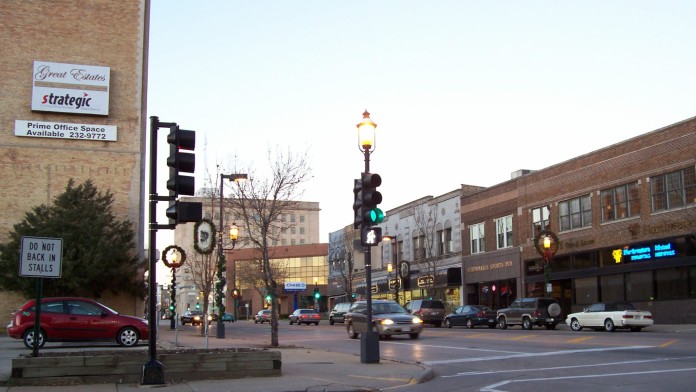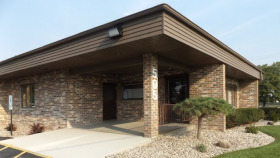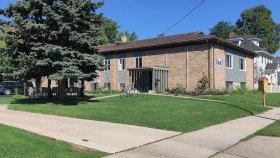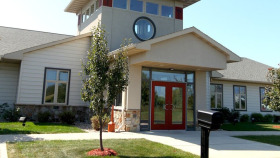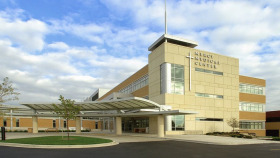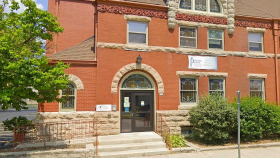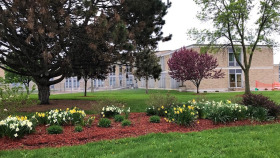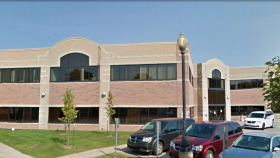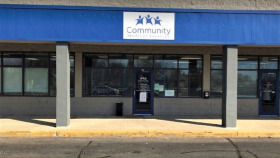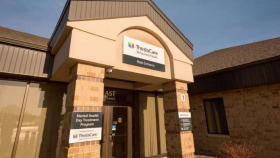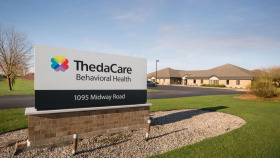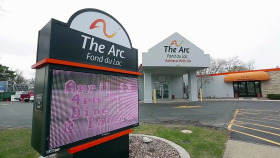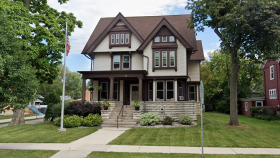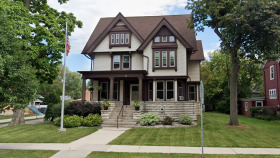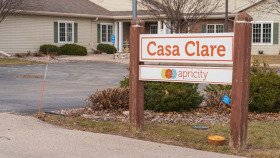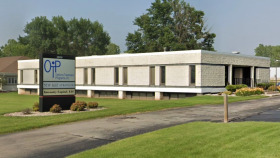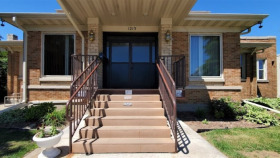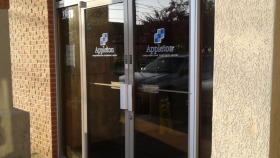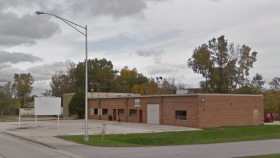Substance Abuse Statistics in Oshkosh, WI
Like much of the U.S., Oshkosh and surrounding Winnebago County have seen the devastating effects of opioid use and related opioid overdoses. Some statistics about drug and alcohol use in Oshkosh and Winnebago County include:
In 2020, the rate of alcohol-related deaths in Winnebago County was 54 people per 100,000 residents.6
In 2021, there were 806 emergency room visits related to alcohol use in Winnebago County. There were 826 people admitted to the hospital for alcohol-related reasons.7
Levels of Care for Addiction Treatment Settings
There are various levels of addiction treatment, ranging in intensiveness and frequency of care. The right level for you depends on the length and severity of your addiction, your mental and physical health, your support system, and more.
Detoxification
Drug and alcohol detox takes place a controlled and supervised setting during which your body gets rid of the addictive substances. Detox can occur in several settings, including outpatient and inpatient environments. Some are medically managed, which means doctors and nurses provide medications and medical care round-the-clock.
Certain drugs, such as alcohol, benzodiazepines, and opioids, have particularly distressing and even dangerous withdrawal symptoms, so these drugs often necessitate detox.
Inpatient Care
Inpatient or residential drug rehab is the most intensive addiction treatment setting, providing 24/7 care, supervision, and monitoring. You live at the facility for the duration of the treatment program, which may last 30, 60, or 90 days. This setting may be best for someone with a severe addiction, polysubstance addiction, or co-occurring mental health disorder, like PTSD or depression.
Partial Hospitalization Programs (PHPs)
PHPs provide a high level of care while allowing you to live at home during the program. You go to the clinic every day for several hours per day but return home during non-treatment hours. It’s a great option for step-down care after completing an inpatient program or as an initial treatment program for someone who can’t necessarily go to inpatient care due to obligations.
Intensive Outpatient Programs (IOPs)
A step down from PHP, an IOP includes several hours of therapy for a few days per week. This option may be beneficial if you have a mild addiction and a strong support system. It may also be used as step-down care after completing inpatient or PHP.
Standard Outpatient
If you choose standard outpatient treatment, you attend therapy one to two days per week for one or two hours per session. Many people make their way through the continuum of care by first completing inpatient or an intensive outpatient program before stepping down to standard outpatient.
Aftercare
Once you’ve completed an addiction treatment program, you will want to continue receiving ongoing support, known as aftercare. You can collaborate with your treatment team on creating an aftercare plan that addresses your needs and preferences. Some people transition into a sober living home while others may join a support group, attending therapy, or all of the above.
How to Pay for Drug Rehab in Wisconsin
Cost shouldn’t be a barrier to quality addiction treatment. There are many ways to finance drug rehab so that you can get the help you need.
Use Private Health Insurance
If you have private health insurance through work or the Healthcare Marketplace, you can use your plan to at least partially, if not fully, cover substance abuse treatment services. Every plan is different—some fully cover inpatient rehab for a certain period while others may only partially cover residential. Make sure to call your provider to learn more. And once you know what your insurance provider will pay, make sure to find a rehab that is in-network with your provider.
BadgerCare (Wisconsin Medicaid)
BadgerCare is Wisconsin’s Medicaid program for low-income people, families, and pregnant individuals who don’t have access to private health insurance. BadgerCare covers drug and alcohol rehab in Wisconsin, including inpatient, outpatient, medication-assisted treatment, assessments, and beyond. Not every treatment facility accepts Medicaid, though, so you’ll want to do your research before committing to one.
Medicare
Medicare is a government program providing health insurance coverage to Wisconsin residents aged 65 and older or those with certain disabilities or health conditions. Like BadgerCare, Medicare covers substance abuse treatment services, such as outpatient rehab, residential treatment, and addiction treatment medications.
TRICARE in Wisconsin
TRICARE provides health insurance coverage for veterans, active-duty military personnel, and their families, and it covers much-needed drug rehab and alcohol rehab services as well as mental health treatment.
Sliding Scale Rehabs
Sliding scale rehabs are able to offer treatment at discounted rates depending on a person’s income, meaning that they only charge you what you are reasonably able to pay. This can greatly reduce the financial burden of drug rehab and enable you to seek the treatment you need to recover from addiction.
IHS-Funded Drug Rehabs
Some drug and alcohol rehabs receive funding from the Indian Health Service, which is a federal health program for Indigenous people in the U.S., including Alaskan Natives. These rehabs offer no-cost addiction treatment to Native Americans, whether they already have health insurance or not. However, the majority of IHS-funded drug rehabs are located on reservations, which may make it difficult for Indigenous folks in cities to access them.
Visitor Information for Oshkosh, WI

If you are considering an alcohol or drug rehab in Oshkosh, WI, or have plans to visit a loved one attending treatment or detox at an Oshkosh center, here are some helpful tips regarding travel to the area:
- The closest airport to Oshkosh is the Austin Straubel International Airport in Green Bay which is about 50 miles away. You can also fly into the Dane County Regional Airport in Madison, which is 85 miles away.
- You can reach Oshkosh by car via Interstate 41 or Wisconsin routes 21 and 94.
- There is public transportation throughout the city of Oshkosh. The bus serves many areas of the city. You can also use ride-share apps to get around town. If you have access to a car, you will be able to find parking in most areas.
- There are more than a dozen affordable hotels in the Oshkosh area. You can find national chain hotels as well as accommodations on sites like Air BnB.
- There are a variety of restaurants in the area, including national chains and local eateries.
- Oshkosh sits on Lake Winnebago and the Fork River. There are opportunities for fishing and boating in the area.
- You can find museums like the Oshkosh Public Museum as well as entertainment options like escape rooms and live theatre and music at the Grand Oshkosh Theatre and the Leach Amphitheater.
Alcohol and Drug Laws in Wisconsin
Alcohol and Drug Laws in Wisconsin:1,2
Wisconsin Naloxone Access and Administration Law: Residents of Wisconsin can obtain naloxone (Narcan) without a prescription and they can also administer it to an overdosing person once they’ve had proper training.
Wisconsin State Good Samaritan Law Amendment: Bystanders in possession of drugs can call 911 to help someone who is overdosing without the risk of being arrested and prosecuted for possession.
Resources
- Wisconsin Department of Health Services, (no date), Dose of Reality: Opioid Data Summary Dashboard
- Wisconsin Department of Health Services, (no date), Opioid Deaths by county
- Wisconsin Department of Health Services, (no date), Opioid Hospitalizations by county
- Wisconsin Department of Health Services, (no date), Opioid Treatment by county
- Wisconsin Department of Health Services, (no date), Alcohol Use in Wisconsin
- Wisconsin Department of Health Services, (no date), Alcohol: Attributable deaths by county
- Wisconsin Department of Health Services, (no date), Alcohol: Hospitalizations by County Dashboard

